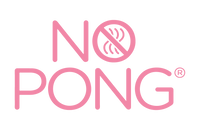We love working with innovative and pioneering brands that seek to make a difference to our world and, most of all, our family.

Mitra Tepercaya Anda untuk Merek Kecantikan Alami & Gaya Hidup Slow-Living di Indonesia
PTMUM telah secara aktif bermitra dengan merek-merek terkemuka dari Australia, Selandia Baru, Norwegia, Denmark, dan Amerika Serikat sejak tahun 2015.
Kami bekerja sama dengan konsultan kekayaan intelektual dan penasihat hukum untuk menangani seluruh proses registrasi pemerintah, asuransi tanggung jawab produk, izin usaha, izin kerja, izin impor, dan perpanjangan berkala—sehingga Anda tidak perlu mengurus semuanya sendiri.
Kami memahami bahwa menembus pasar baru dengan proses impor yang sangat teregulasi bisa menjadi hal yang rumit dan mahal.
Namun, saat Anda memilih PTMUM sebagai mitra distribusi, Anda dapat merasa yakin bahwa merek dan produk Anda akan selalu memenuhi regulasi terbaru di Indonesia.
Sebagai bagian dari proses onboarding merek baru, kami juga menyediakan checklist dokumentasi lengkap yang harus disiapkan untuk memastikan proses registrasi berjalan dengan lancar, cepat, dan efisien.
Buka Peluang Co-Branding Bersama Mummasphere
Mendorong Pertumbuhan Organik di Kalangan Konsumen Premium Indonesia
Di PTMUM, kami mengkhususkan diri dalam menciptakan strategi co-branding dan kampanye pemasaran yang dirancang secara khusus untuk menjangkau audiens inti kami—konsumen yang cerdas dan menghargai produk premium, alami, dan clean-living.
Misi kami adalah meningkatkan kesadaran akan gaya hidup bersih (clean living) dan mengedukasi pasar Indonesia tentang manfaat produk alami bebas racun dan bahan kimia berbahaya. Kami fokus pada pertumbuhan merek jangka panjang dan berkelanjutan, bukan tren instan yang cepat memudar—terutama saat meluncurkan brand baru di sektor kecantikan serta ibu & anak yang sangat kompetitif di Indonesia.
Untuk memperkuat kehadiran merek Anda, kami menjalin kemitraan dengan jaringan KOL (Key Opinion Leaders) terpercaya di bidang kecantikan, wellness, dan gaya hidup travel. Melalui storytelling yang autentik di media sosial, kampanye influencer, dan event interaktif, kami membantu menghubungkan merek Anda dengan komunitas yang loyal dan sevisi di seluruh Indonesia.
Strategi Distribusi Fleksibel yang Disesuaikan dengan Tujuan Merek Anda
Pilih Satu Jalur—atau Manfaatkan Semuanya
PTMUM memberi Anda fleksibilitas penuh untuk memilih strategi distribusi yang selaras dengan visi dan ekspektasi margin merek Anda. Apakah Anda lebih memilih model single-channel D2C (Direct-to-Consumer) atau pendekatan multi-channel retail, kami siap menyesuaikan solusi agar mendukung pertumbuhan jangka panjang brand Anda di Indonesia.
Kami memahami bahwa banyak merek asal Barat dibangun dengan fokus pada kanal D2C karena menawarkan kontrol pelanggan yang kuat dan margin yang lebih tinggi. Namun, landskap ritel Indonesia dan perilaku konsumennya memerlukan pendekatan yang berbeda.
Dengan rata-rata tingkat kelahiran 2,5 anak per wanita dan sekitar 1,6 juta kelahiran setiap tahun, pasar produk ibu dan bayi di Indonesia memiliki potensi luar biasa.
Toko bayi fisik tersebar luas dan mudah diakses—bahkan bisa ditemukan dalam radius 5 km satu sama lain di area urban maupun suburban.
Dengan bermitra bersama PTMUM, Anda dapat menjangkau jaringan distribusi online dan offline secara bersamaan, guna memaksimalkan jangkauan, relevansi, dan penjualan—tanpa mengorbankan integritas merek Anda.
Membangun Kemitraan Kuat dengan Retailer Premium
Fokus Utama B2B Kami: Toko Bayi Independen & Health Food Store
Hubungan bisnis-ke-bisnis (B2B) utama kami berpusat pada butik bayi premium dan toko makanan kesehatan alami, yang tersebar di kota-kota besar Indonesia seperti Jakarta, Bandung, Surabaya, Medan, dan Bali.
Di tengah lanskap ritel yang sering kali didominasi oleh perang harga agresif, baik secara online maupun offline, kami memilih jalur yang berbeda. Strategi kami fokus pada membangun kemitraan jangka panjang dengan jaringan retailer fisik pilihan berkualitas tinggi, bukan sekadar mengejar lonjakan pangsa pasar jangka pendek.
Kami secara eksklusif bekerja sama dengan toko independen yang sudah mapan di sektor ibu dan anak—bisnis yang sejalan dengan nilai-nilai kami dalam hal kualitas, edukasi, dan konsumen yang lebih sadar.
Tim penjualan kami yang berpengalaman secara aktif memperluas visibilitas merek dan kehadiran produk di rak-rak toko di seluruh kepulauan Indonesia, termasuk pasar utama di Jawa, Bali, Sumatra, dan Kalimantan.
Ingin membangun jaringan distribusi dengan retailer premium terpercaya di Indonesia?
Jalin kemitraan dengan PTMUM dan perluas jangkauan merek Anda secara berkelanjutan.
Jalur Distribusi di Indonesia: Di Mana & Bagaimana Menjual Produk Konsumen Premium
Menguasai Lanskap Ritel Dua Kanal di Indonesia
Untuk sukses masuk ke pasar Indonesia, merek perlu memahami secara menyeluruh ekosistem distribusi hybrid yang unik—perpaduan antara jaringan ritel modern dan platform e-commerce yang tumbuh pesat.
Sejak pandemi COVID-19, perilaku konsumen di Indonesia telah mengalami perubahan besar, mendorong brand untuk mengadopsi strategi penjualan yang terintegrasi antara online dan offline.
Di PTMUM, kami menyediakan solusi distribusi menyeluruh multi-channel agar merek Anda bisa menjangkau audiens yang tepat—di mana pun mereka berbelanja. Baik melalui toko fisik premium maupun marketplace digital terkemuka, kami membantu Anda membangun kehadiran ritel yang konsisten dan skalabel di seluruh Indonesia.
Jaringan Distribusi Offline yang Kuat di Kota-Kota Strategis
Distribusi ritel offline kami mencakup kota-kota tier 1 dan tier 2 di seluruh Indonesia, memberikan eksposur produk Anda yang optimal di:
✅ Department store dan specialty store di pusat perbelanjaan perkotaan
✅ Toko makanan sehat premium, butik bayi, toko hobi dan gaya hidup outdoor
✅ Toko umum independen yang melayani segmen konsumen niche dengan daya beli dan minat tinggi
Kami menjalin kemitraan jangka panjang dengan jaringan ritel modern ternama, sekaligus mendukung jaringan retailer independen yang gesit dan terkurasi di pasar utama seperti Jakarta, Bandung, Surabaya, Bali, dan wilayah lainnya di Indonesia.

E-Commerce di Indonesia: Apa yang Perlu Diketahui Merek Global
Dikuasai Marketplace Lokal, Diatur oleh Regulasi Domestik
Pasar e-commerce Indonesia sangat dinamis, hiper-lokal, dan sebagian besar tertutup bagi platform asing. Per tahun 2024, lima besar marketplace dengan trafik bulanan tertinggi adalah:
- Shopee: 227,6 juta kunjungan/bulan
- Tokopedia: 95,6 juta
- Lazada: 43,6 juta
- Blibli: 23,1 juta
- Bukalapak: 4,2 juta
Tidak seperti banyak pasar global lainnya, Indonesia terbukti resisten terhadap platform internasional seperti Amazon, eBay, AliExpress, dan Temu. Hal ini disebabkan oleh beberapa hambatan utama:
- Regulasi impor ketat: Pemerintah melarang pengiriman e-commerce dari luar negeri dengan nilai di bawah USD 100, membatasi akses belanja lintas negara yang murah.
- Pajak impor progresif: Transaksi internasional di atas USD 3 dikenakan bea masuk bertingkat, membuat pembelian luar negeri menjadi mahal dan tidak praktis bagi konsumen lokal.
- Perlindungan pasar lokal: Pada 2023, TikTok Shop Indonesia ditutup akibat larangan belanja online via media sosial. ByteDance kemudian diwajibkan untuk menggabungkan TikTok Shop dengan Tokopedia, menegaskan komitmen pemerintah untuk melindungi pedagang lokal dan keamanan data pengguna.
Strategi E-Commerce Kami: Didukung oleh Shopee dan Tokopedia
Di PTMUM, kami memahami secara mendalam ekosistem digital commerce Indonesia. Operasi e-commerce kami difokuskan pada Shopee Indonesia, marketplace paling ramai dan populer di tanah air.
Melalui kemitraan ini, kami:
✅ Mengelola official store merek dengan dedicated Shopee relationship manager
✅ Mengoptimalkan visibilitas produk, performa kampanye, dan konsistensi brand
✅ Menerapkan strategi harga terstruktur untuk meminimalkan perang harga dan menjaga margin keuntungan
✅ Memastikan kepatuhan regulasi serta keselarasan promosi di antara berbagai penjual
Kami juga aktif mengelola transisi integrasi Tokopedia–TikTok untuk memastikan stabilitas performa merek partner selama perubahan besar dalam platform digital ini.
Strategi Sukses di Pasar E-Commerce Indonesia
Agar sukses di ekonomi digital terbesar di Asia Tenggara, merek global perlu:
✅ Bermitra dengan distributor lokal berpengalaman untuk dukungan hukum, logistik, dan komersial
✅ Mendaftarkan semua produk ke BPOM dan SNI untuk dapat listing secara legal di Shopee, Tokopedia, dan kanal ritel offline
✅ Membangun kehadiran merek secara seimbang di ritel modern dan platform e-commerce top
✅ Menyesuaikan struktur harga dan margin dengan mempertimbangkan pajak lokal, biaya platform, dan tekanan pasar impor gelap
Dengan menerapkan strategi multi-channel dan patuh pada regulasi lokal, merek internasional dapat membangun pertumbuhan yang berkelanjutan dan kompetitif di pasar Indonesia.
PTMUM menawarkan akses pasar penuh bagi merek internasional yang ingin masuk atau tumbuh di Indonesia melalui jaringan distribusi online dan offline yang telah terbukti. Dari rak modern retail hingga e-commerce yang ramah mobile, kami memastikan produk Anda menjangkau konsumen yang tepat—dengan dukungan manajemen merek end-to-end dan keahlian pasar lokal.
Hal Penting Lainnya:
Melindungi Merek Anda dari Persaingan Grey Market di Indonesia
Merek global yang beroperasi di Indonesia kini menghadapi ancaman serius dari pasar impor gelap (grey market)—segmen tidak resmi yang didominasi oleh importir tanpa izin, terutama dalam sektor kosmetik, elektronik, dan fesyen.
Produk-produk ini masuk ke pasar Indonesia tanpa melalui proses sertifikasi resmi seperti BPOM atau SNI, sehingga tidak memenuhi standar regulasi yang berlaku.
Dengan melewati jalur impor resmi, pemain grey market mampu menjual produk dengan harga jauh lebih rendah, yang merugikan distributor sah, merusak nilai merek, dan menciptakan kebingungan di kalangan konsumen.
Karena itu, sangat penting untuk:
✅ Bermitra dengan distributor lokal resmi yang memahami dan mematuhi seluruh regulasi
✅ Melakukan registrasi produk secara legal agar dapat dijual secara sah di kanal ritel maupun e-commerce
✅ Menjaga integritas merek dan kontrol harga di semua jalur penjualan, baik offline maupun online
Ingin melindungi brand Anda dari risiko pasar impor gelap?
Bermitralah dengan PTMUM, distributor terpercaya yang memastikan perlindungan merek Anda di Indonesia.
PTMUM juga menyediakan dukungan kepatuhan menyeluruh dan strategi perlindungan merek untuk membantu merek internasional premium bersaing secara adil—dan sukses—di pasar ritel Indonesia yang kompleks dan sangat kompetitif.
Memahami Ekspektasi Margin di Ekosistem Ritel Indonesia
Meluncurkan merek di Indonesia tidak hanya soal registrasi produk dan kepatuhan hukum. Kesuksesan juga ditentukan oleh pemahaman mendalam tentang struktur margin lokal dan dinamika biaya di tiap kanal ritel.
Rincian Margin di Retail Offline (Modern Trade)
Menjual produk melalui jalur ritel modern dan specialty store di Indonesia memerlukan alokasi biaya yang signifikan. Umumnya, retailer mengharapkan:
- Margin kotor 35–40% dari merek
- Tambahan 5–10% untuk dukungan pemasaran, seperti:
✅ Biaya listing produk
✅ Kontribusi untuk display dan rak khusus
✅ Diskon promosi & rebate bersyarat
✅ Sponsorship acara di dalam toko
Investasi ini penting untuk menjaga visibilitas merek dan daya saing, terutama di lokasi retail dengan traffic tinggi.
Ekspektasi Margin di Platform E-Commerce: Skalabel tapi Kompetitif
Untuk penjualan di platform besar seperti Shopee dan Tokopedia, struktur biaya yang umum meliputi:
- Komisi 12–15%, tergantung kategori produk
- Biaya opsional untuk:
✅ Partisipasi dalam kampanye promo
✅ Iklan berbayar
✅ Program promosi yang digerakkan oleh platform
Meskipun e-commerce merupakan kanal penjualan yang skalabel dan efisien, tetap dibutuhkan kemampuan digital marketing, manajemen stok, dan pengiriman last-mile yang solid agar dapat mencapai pertumbuhan berkelanjutan dan ROI yang optimal.
Rencanakan Strategi Harga Anda dengan Bijak
Di PTMUM, kami membantu mitra merek mengembangkan strategi harga dan margin yang realistis dan kompetitif, dengan mempertimbangkan:
✅ Kebutuhan retailer
✅ Biaya platform digital
✅ Ekspektasi konsumen lokal
Tujuan kami adalah memelihara nama baik merek dan profitabilitas jangka panjang di seluruh kanal distribusi.
Ingin membangun strategi harga dan distribusi yang tepat di pasar Indonesia? Konsultasikan bersama PTMUM hari ini.
Legal & Compliance: Persyaratan Hukum dan Regulasi untuk Menjual Produk di Indonesia
Menavigasi kepatuhan produk di Indonesia memerlukan pemahaman yang jelas terhadap Kode HS (Harmonized System) serta otoritas regulasi yang berwenang. Tergantung pada kategori produk Anda, diperlukan berbagai sertifikasi dan persetujuan resmi sebelum produk dapat secara legal masuk dan dijual di pasar Indonesia.
Registrasi BPOM untuk Produk Kosmetik, Skincare & Suplemen
Jika Anda ingin menjual produk kosmetik, perawatan kulit, suplemen makanan, atau produk perawatan tubuh pribadi, maka Anda wajib mendaftarkan produk ke Badan Pengawas Obat dan Makanan (BPOM).
BPOM adalah lembaga pengawas nasional untuk makanan dan obat-obatan di Indonesia—setara dengan TGA di Australia atau FDA di Amerika Serikat.
📌 Proses registrasi BPOM sangat bergantung pada kompleksitas produk dan kelengkapan dokumen yang disiapkan.
Estimasi waktu proses bisa berkisar antara 3 bulan hingga 3 tahun, dengan regulasi yang sering diperbarui mengikuti standar kesehatan dan keselamatan terbaru.
Sertifikasi SNI untuk Tekstil, Mainan & Barang Konsumen
Untuk produk seperti tekstil, mainan anak-anak, elektronik, serta berbagai barang konsumsi rumah tangga, Anda harus memperoleh Sertifikasi Nasional Indonesia (SNI) sebelum produk dapat didistribusikan atau dijual di pasar domestik.
SNI adalah standar nasional produk di Indonesia yang bertujuan memastikan keselamatan, mutu, dan perlindungan konsumen.
Memahami dan memenuhi seluruh persyaratan legal & compliance adalah kunci sukses masuk ke pasar Indonesia.
Bermitra dengan PTMUM berarti Anda memiliki tim ahli yang siap membantu seluruh proses registrasi, sertifikasi, dan dokumentasi merek Anda.
Ingin memahami lebih jauh tentang pasar Indonesia di tahun 2025–2026?
Pelajari peluang dan tantangan yang muncul di tengah penyusutan kelas menengah serta apa artinya bagi merek global seperti Anda.
Klik disini untuk eksplorasi lengkap tentang strategi, regulasi, dan potensi pertumbuhan bisnis Anda di ekonomi digital terbesar Asia Tenggara.
Overheard
Justin Bernhaut
Co-founder of Jack N' Jill (AUS)

“Jack N' Jill has partnered with PT MUM for several years now.
Daisy has an entrepreneurial spirit and a tenacious determination coupled with a deep understanding of the Indonesian market.
She is a pleasure to work with and will be a valuable custodian of your brand while delivering performance in Indonesia, a market ripe with opportunity.”
















